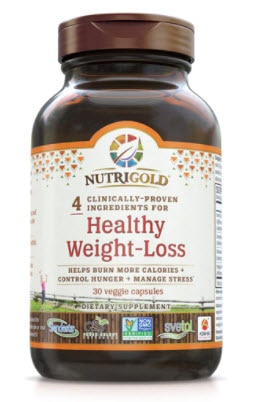Losing weight seems to get more difficult with age. But that doesn’t have to be the case, according to a new study.
Older people who enrolled in a weight-loss program in a UK hospital shed more pounds on average than their younger peers, according to findings from the Human Metabolism Research Unit at the Warwick Medical School in England.
People under the age of 60 who enrolled in the program lost an average of 6.9% of their body weight over a period of several years But those over 60 did even better, shedding an average of 7.3% of their body weight.
How did they do it? By modifying their diet and increasing their level of exercise.
Crucially, the participants also worked with professionals who created weight-loss programs tailored to the individual needs of the participants, all of whom were morbidly obese at the beginning of the study.
The best way to lose weight as you get older
To lose weight effectively, older people in good health should follow a simple regimen: eat less and exercise more, according to Dr. Sunil Daniel, a Hazlet, New Jersey-based obesity medicine physician and member of the Obesity Action Coalition national board of directors.
The first step to losing weight is to cut between 500 and 750 calories from your daily diet.
“Choose plant-based and low-energy-density options,” says Daniel, who was not affiliated with the UK study. “These tend to have lower calories per gram of food.”
Examples of such foods include:
- Leafy vegetables
- Fresh fruits
- Whole grains
On the other hand, try to avoid red meats, solid fats and foods with added sugars, he says.
Staying hydrated is an important part of losing weight. Daniel says you should drink at least 64 ounces of calorie-free beverages – preferably water – every day.
Also, try to increase your level of exercise. Daniel says it is best to be active on most days of the week.
“Getting a wearable helps,” he says, referring to devices such as Fitbit that track your daily steps and offer feedback about your sleep. “Get at least six hours of sleep,” he adds.
Daniel says a good weight management target is to establish an initial goal of losing 5% to 10% of body weight. So, if you are 200 pounds, try to lose about 20 pounds.
Challenges seniors may face
Seniors face some special challenges when trying to lose weight. For starters, those with certain health conditions should see a physician before trying to lose weight. Such conditions might include:
- Diabetes or pre-diabetes
- Fatty liver
- Hypertension
- Sleep apnea
- Heart issues
Also, older adults are at a higher risk of undernutrition than younger people, Daniel says. So, it is particularly important to eat foods that are rich in vitamins, minerals and antioxidants.
One way to boost your nutritional content is to purchase shelf-stable and nutritionally complete meal replacement shakes, such as Boost and Ensure. Look for high-protein, lower-sugar versions, Daniel says.
Daniel says older adults are especially vulnerable to a condition known as sarcopenic obesity, which is defined as the presence of both sarcopenia — loss of muscle — and obesity.
Older adults generally have a lower percentage of lean mass, or muscle, than younger adults.
“We want to protect loss of lean mass when older adults lose weight,” Daniel says. “This helps prevent falls, fractures and decline in quality of life.”
For this reason, moderate calorie reduction – rather than severe restriction – is best in older adults.
Older adults also should take extra care to get enough fiber and protein into their diet. “Protein helps us feel fuller faster and longer, which helps in weight loss,” Daniel says.
The UK study found that professionals can help older dieters reach their weight-loss goals. Working with nutritionists, exercise specialists and behavior or mental health professionals can indeed make sense, Daniel says
You also might benefit from consulting with a physician. For instance, a doctor may be able to determine if a medication you are taking is contributing to weight gain, Daniel says.



